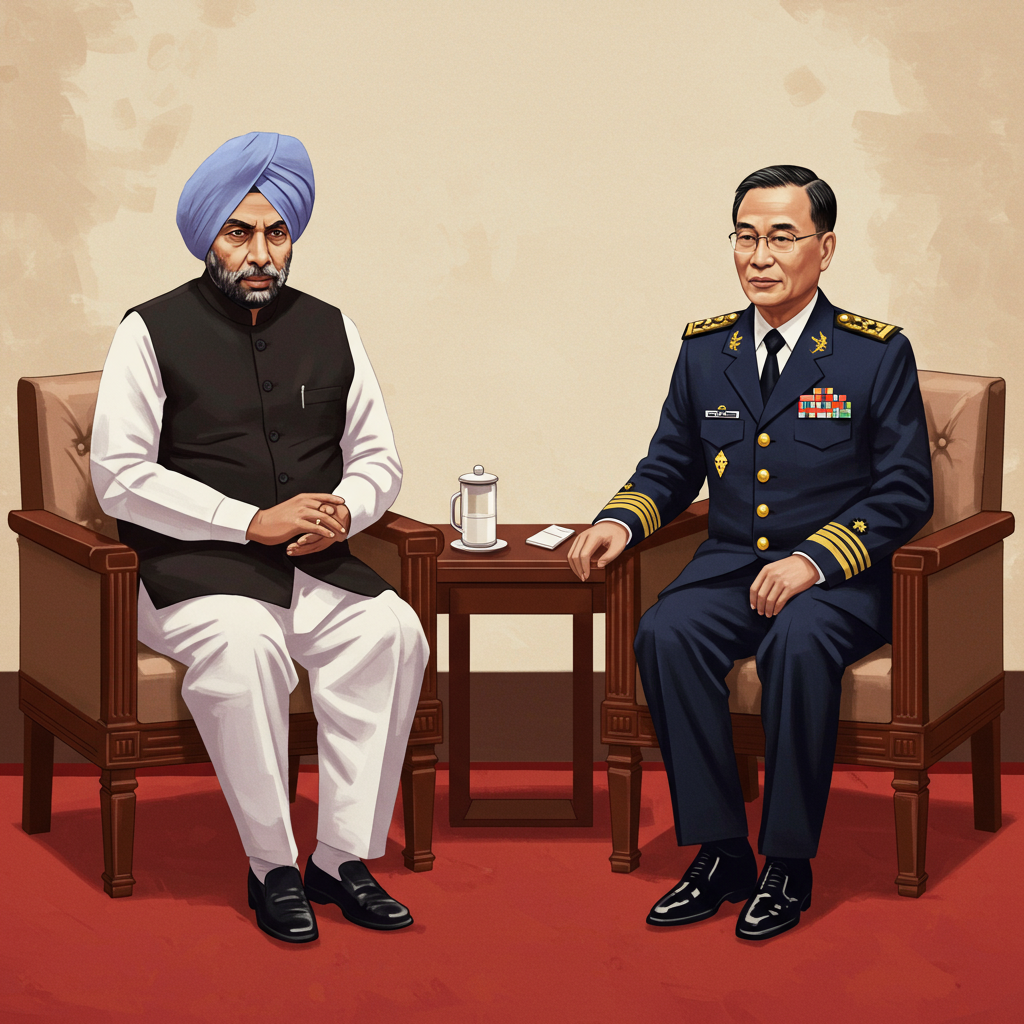Rajnath Singh Holds Bilateral Talks with Chinese Counterpart at SCO Meet
India’s Defence Minister, Rajnath Singh, held a significant meeting with his Chinese counterpart, Admiral Dong Jun, on the sidelines of the Shanghai Cooperation Organisation (SCO) Defence Ministers’ Meeting in Qingdao, China. The high-level engagement aimed to address issues concerning bilateral ties between the two Asian neighbours.
Describing the discussions as a “constructive and forward-looking exchange of views,” Defence Minister Singh emphasized the shared responsibility of both nations to “maintain this positive momentum and avoid adding new complexities” to the relationship. This underscores India’s consistent position on managing the often-strained ties, particularly following periods of tension along the Line of Actual Control (LAC).
A point of positive sentiment highlighted by Mr. Singh was his expression of happiness regarding the resumption of the Kailash Mansarovar Yatra pilgrimage after a hiatus of nearly six years.
India’s Firm Stand on Terrorism at SCO
While bilateral talks focused on managing relationship stability, India demonstrated a resolute and uncompromising stance on terrorism during the main SCO Defence Ministers’ meeting. Defence Minister Rajnath Singh firmly asserted that countries must not employ “double standards” when addressing the global menace of terrorism.
In a move underscoring India’s conviction, the SCO Defence Ministers were unable to adopt a joint declaration. According to India’s Ministry of External Affairs (MEA), this failure stemmed from certain member countries’ inability to reach a consensus on specific issues. MEA spokesperson Randhir Jaiswal explicitly stated that India’s strong desire to have its concerns on terrorism reflected in the document was not acceptable to “one particular country.” This inability to agree on language, particularly regarding terrorism, prevented the finalization of the joint statement.
Addressing the SCO gathering, Mr. Singh referenced the April 22 Pahalgam terror attack, which tragically resulted in the deaths of 26 civilians, including a Nepali national. He highlighted that India exercised its right to self-defence through “Operation Sindoor” to dismantle cross-border terror infrastructure. His address included a pointed call for accountability for all entities involved in terrorism, including perpetrators, sponsors, and financiers, signaling a clear stand against state sponsorship of terror. This strong position is widely interpreted as a direct message to nations perceived as soft on terrorism.
Preceding High-Level Diplomatic Engagement
The Defence Ministers’ meeting in Qingdao followed another key engagement just days earlier. On June 23, India’s National Security Advisor (NSA), Ajit Doval, met with Chinese Foreign Minister Wang Yi in Beijing.
During their meeting, NSA Doval and Foreign Minister Wang Yi reviewed recent developments in India-China relations. They underscored the importance of advancing overall bilateral cooperation, including fostering greater people-to-people ties. According to the MEA, their discussions covered bilateral, regional, and international issues of mutual interest. Significantly, NSA Doval also emphasized the critical necessity of countering terrorism in all its forms and manifestations to ensure regional peace and stability.
These consecutive high-level interactions – between the National Security Advisors and the Defence Ministers – highlight ongoing diplomatic efforts by both India and China to manage their complex relationship, navigate regional security dynamics, and explore avenues for engagement within multilateral frameworks like the SCO.




